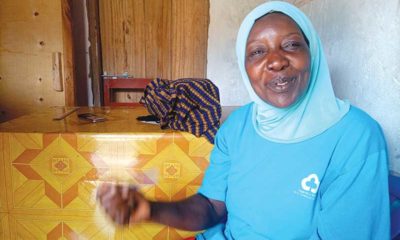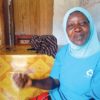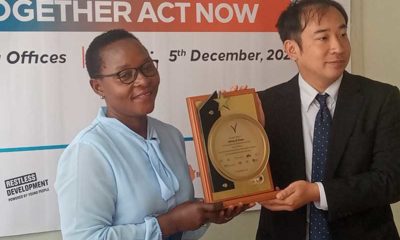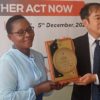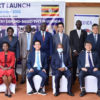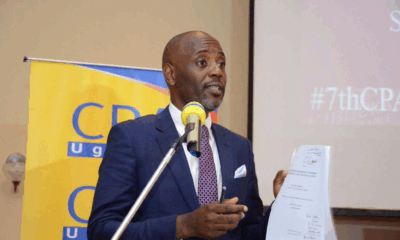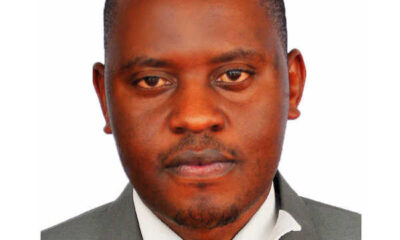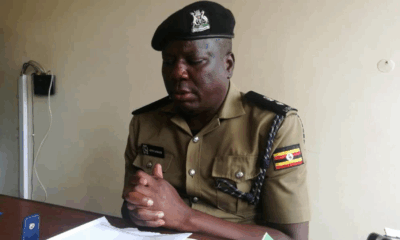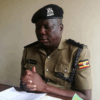News
Korea-inspired self-help groups win cash
It was joy and celebration last weekend as dozens of people converged at Protea Hotel in Kampala to collect winning cheques after having been selected as winners of the inaugural Ambassador’s Award for the National Saemaul Undong (SMU) Competition.
Inspired by the story of Korea’s rapid economic transformation miracle, leaders from seven community self-help groups had a reason to smile as they were announced winners of the competition that attracted 190 entries from 33 districts across Uganda.
As the Deputy Ambassador of Korea in Uganda Kim Ilhoon revealed, the competition was initiated in July this year by his boss Ambassador Park Jong-Dae with the aim of encouraging Ugandans to learn from Korea’s runaway development path by engaging in a competition amongst community groups.
Judged on the basis of their ambitions as well as achievements and activities that foster community cooperation and progress, seven groups were selected as winners of the competition. They all took away cash prizes that totalled Ushs27.5million.
Undeterred by remoteness, Busanza village from Kyenjojo district in South Western Uganda emerged the overall winner of the competition with a grand prize of Ushs10m.
Busanza village, according to Ambassador Park, demonstrated best example of Korea’s SMU model of the 1960s which propelled millions of people in South Korea out of poverty to prosperity through engaging in community development projects such as road improvement as well as income generating projects at community and household level.
“They did not need external help to start development projects. They showed diligence through regular participation in weekly meetings that helped the village come up with initiatives to improve living conditions of its members,” said Ambassador Park.
Perhaps Busanza deserved the top prize considering the remarkable achievements seen through mobilising rural dwellers that saw community members overcome selfishness to establish common roads that linked the village to the market by enabling vehicles access places hitherto unreachable.
In addition to road construction, village members, numbering about 60, improved their hygiene through maintaining community wells, home improvement and waste disposal.
Perhaps more remarkable is the fact that villagers managed to raise over Ushs2m which they invested in a catering business that serves the community during functions.
Another remarkable village and which scooped the third prize in the competition is Naguru Godown SMU in Nakawa division of Kampala. The crowded multi-tribal village has transformed from a filthy stinking area into a liveable place thanks to the introduction of a systematic garbage collection programme initiated by the leaders of the village Saemaul Undong movement about two years ago.
Through sensitization, village members were mobilised to safely collect garbage in their residences for three days and later dispose it off to KCCA garbage trucks that visit the village twice a week. Proper garbage disposal was supplemented by regular cleaning of drainage channels and sensitisation of community members on proper sanitation.
Other villages that emerged winners include Kiboha in Kabarole district, Bukirya in Sironko district, Ogwang Apur and Ibur both in Oyam district and Rukungiri in Rukungiri district.
Ambassador Park expressed optimism that the competition will not only help to encourage other people to re-embrace the spirit of community cooperation or Bulungibwansi, but also cultivate the spirit of wealth creation through sharing knowledge on various economic activities.
The SMU movement, locally known as Bulungibwansi was a powerful force that helped to transform South Korea from a peasantry, superstitious society into a highly competitive and productive country.
The government of South Korea used similar inducements that were given in form of cement, iron bars or irons sheets to the best performing communities which materials were used to build roads, bridges and schools.
While greatly diminished through years of individualistic tendencies promoted by the government and backed by Western donor governments, Bulungibwansi is recognised as a pillar of Buganda’s greatness and civilisation. There have been efforts by the current leadership in the Kingdom of Buganda to revive Bulungibwansi including dedicating October 7 as a special day for performing Bulungibwansi activities such as paving roads.
The movement is not without its challenges though as some associate with it draconian practices incompatible with today’s democratic principles of free will. But its advocates cite the collapse of the community spirit for the increase in crime, collapse and narrowing of road networks even in wealthy neighbourhoods and declining standards of social services such as healthcare and education as well as destruction of the environment.
Comments




